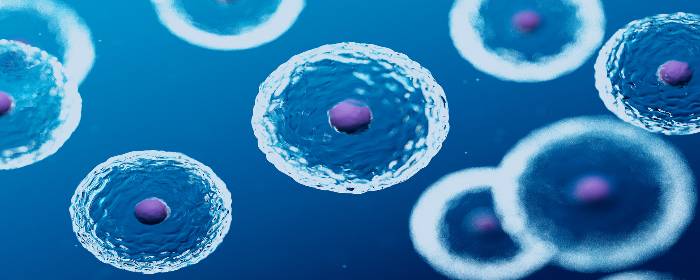Mesenchymal stem cells are believed by many to be the most effective type of stem cell for regenerative medicine. Mesenchymal stem cells are intriguing because they can regenerate damaged tissues in four major ways:
Paracrine effects – Mesenchymal stem cells release substances that can attract other cells to the site of injury. For example, mesenchymal stem cells secrete cytokines to attract cells that participate in wound healing.
Trophic effects – Mesenchymal stem cells release substances that increase blood vessel development and help cells grow and survive.
Immunomodulation – Mesenchymal stem cells have anti-inflammatory properties, exerting beneficial effects in multiple sclerosis, graft versus host disease, Crohn’s disease, ulcerative colitis, and lupus, among others.
Differentiation – Since they are pluripotent, mesenchymal stem cells have the potential to become other cells such as bone cells, fat cells, brain cells, skin cells, blood vessel cells, and many others.
Unfortunately, it can be difficult to collect mesenchymal stem cells. One major source of mesenchymal stem cells is bone marrow. To collect bone marrow mesenchymal stem cells, however, a person (usually the patient) must undergo a procedure to obtain bone marrow. This procedure is invasive and can be uncomfortable. Therefore, researchers are keenly interested in finding other sources of mesenchymal stem cells.
One very attractive source of mesenchymal stem cells is the umbilical cord. For centuries, umbilical cord tissue was considered medical waste. Once a baby was born and the umbilical cord was cut, the rest of the umbilical cord was usually discarded. Approximately 30 years ago, however, researchers discovered that umbilical cords that were destined to be destroyed as medical waste actually contained cells that could be medically useful. Fifteen years ago, researchers showed that cells taken from umbilical cords contained mesenchymal stem cells that have the ability to become other cells (e.g. fat or bone cells).
Since 2004, researchers have discovered an incredible number of potential uses for mesenchymal stem cells that come from umbilical cord tissue. In fact, research shows that mesenchymal stem cells are taken from discarded umbilical cord actually have higher levels of certain helpful genes then mesenchymal stem cells taken from fat tissue, bone marrow, or skin. Perhaps most impressively, umbilical cord mesenchymal stem cells are non-tumorigenic, which means they do not produce tumors.
Today, mesenchymal stem cells derived from the umbilical cord are the subject of intense clinical research. There are approximately 100 clinical trials testing the safety and effects of umbilical cord mesenchymal stem cells in over a dozen different diseases. In all clinical studies, these stem cells have proven to be remarkably safe—there have been no side effects reported aside from a temporary fever in some cases.
Taken together, these results suggest human umbilical cord is an excellent source of mesenchymal stem cells for several reasons. Unlike embryonic stem cells, there are no ethical problems collecting umbilical cord tissue for stem cells. These particular stem cells appear to be a bridge between prenatal and postnatal mesenchymal stem cells and possess the beneficial properties of each. They do not form tumors, but they do grow in number and become adult cells. As such, human umbilical cord mesenchymal stem cells are unique and are a promising resource in regenerative medicine.
Reference: Arutyunyan, I. et al. (2017 Umbilical Cord as Prospective Source for Mesenchymal Stem Cell-Based Therapy. Stem Cells International. 2016:6901286.


 St. Petersburg, Florida
St. Petersburg, Florida
